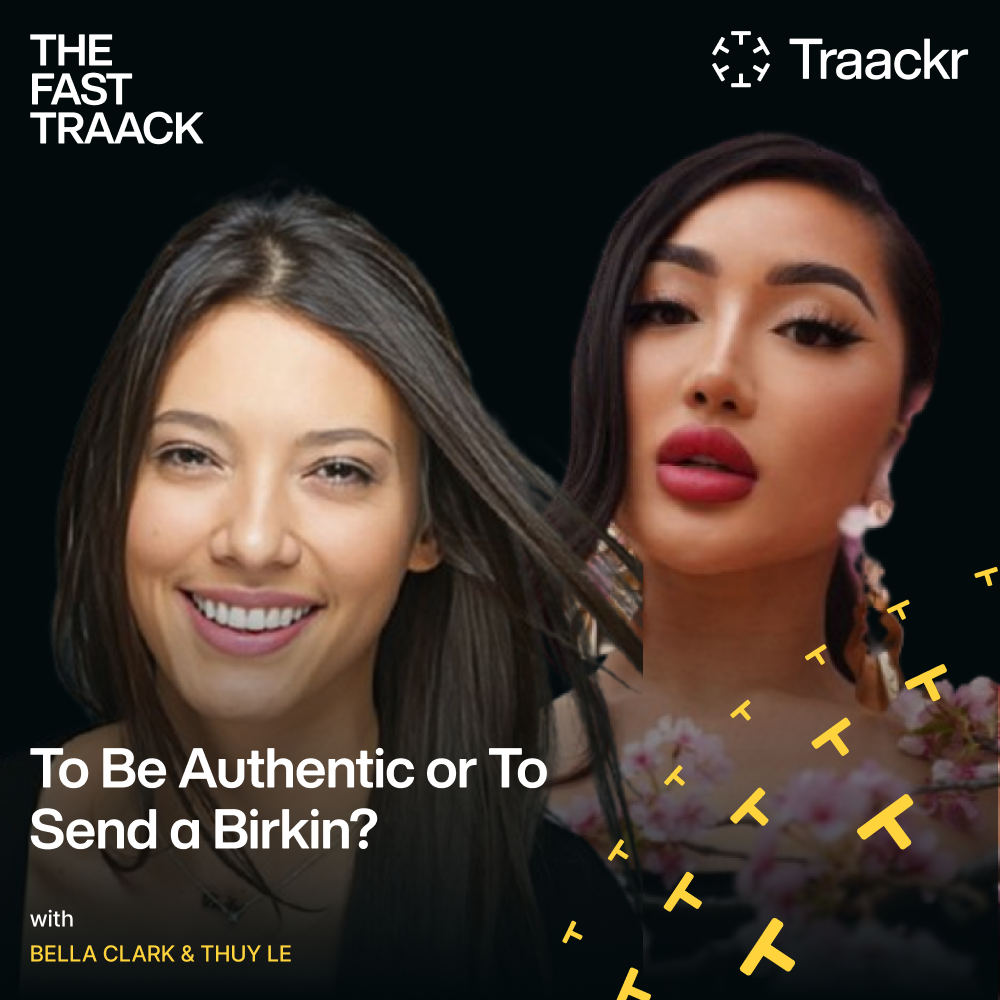Influencer Marketing Rules and Regulations You Should Know

In the US alone, it's estimated that influencer marketing spend will reach $7.14 billion in 2024. It’s clear that influencer marketing is now a core strategy for brands to earn awareness and trust, build community, and drive sales.
However, as the influencer marketing industry has grown, it has also become more complex. Many international trade and advertising authorities have implemented specific social media and influencer marketing regulations, in order to protect consumers and ensure brands and influencers maintain a certain level of transparency.
If you are a brand that is activating an influencer program in multiple markets, it is highly likely that there are multiple laws and regulations that you need to ensure compliance with. Depending on how many markets you’re operating in, this can be especially tricky to keep track of (it should be noted that individual states within the US may have their own regulations).
To get started, check out this list of social media and influencer marketing regulations in the US, UK, and France that we’ve put together. It should be noted that new rules and regulations are always being developed, so it is advised that you always check for updates in your relevant markets. To dive deeper, keep reading to find more advice on how to keep your influencer program and influencer partners compliant.
Tip: Traackr’s influencer marketing platform can also help you establish influencer marketing governance standards and ensure compliance at scale.
Influencer Marketing Rules and Regulations You Should Know
US Influencer Marketing Rules and Regulations
Federal: Disclosure of Paid and Gifted Influencer Marketing Content
In the US, the Federal Trade Commission (FTC) has established guidelines for influencer marketing that require influencers to disclose their relationships with brands in a clear and conspicuous manner. Any material connection between a brand and an influencer must be disclosed, including when an influencer receives a gifted item or is paid to promote a brand. These disclosures must be included in all influencer marketing content in a way that is easily understood by consumers, such as a simple explanation like “Thanks to X Brand for the free product,” or by using the hashtags #ad or #sponsored in social media posts.
Since consumers are not required to click “more” in order to see disclosures, influencers should have hashtags appear before any "more" link in the post. To avoid this, a best practice for influencers should be to have disclosure hashtags at the beginning of a post. Here are some additional disclosure tips for your influencer partners:
- Imaged-based content. If influencer content is featured on an image-based platform like Snapchat, influencers should superimpose a hashtag disclosure over the image.
- Video content. Disclosures should be made in the description, stated during the video, and superimposed on the video. When live streaming, make these disclosures regularly.
To ensure that influencer partners are compliant with FTC guidelines, many brands have rules or policies that influencers must follow when working with the brand such as an Influencer Policy.
Federal: Mandatory Information for Influencer Marketing Content Promoting Alcoholic Beverages
The US Alcohol and Tobacco Tax and Trade Bureau has established regulations for influencer marketing and social media content that promotes alcoholic beverages. Some of the regulations are much the same as what the FTC has created for influencer marketing content at large, including proper disclosure of gifted and sponsored content.
However, it also includes more specific regulations around how and where alcoholic beverages can be displayed, what other kinds of mandatory information is required to be shown (and where), and what counts as misleading information about an alcoholic beverage. To read more, go to our influencer marketing regulation list and read the source material.
State: Influencer Marketing Content from Minors and College Athletes, Cryptocurrency Compensation, and More
These federal regulations from the FTC and TTB may not be the only ones that brands and influencers need to be aware of when operating in the United States. Each individual state may have its own set of regulations, so it’s important to do extensive research on the country and region that you plan to tap into.
For example, Illinois just added an amendment to its child labor laws that addresses children in influencer marketing. This has not a federal regulation (yet), but is still important to know if you plan to work with any influencers located in Illinois. To find out more about individual state rulings, go to our influencer marketing regulation list and read the source material.
UK Influencer Marketing Rules and Regulations
Disclosure of Paid and Gifted Influencer Marketing Content
The UK’s Advertising Standards Authority’s (ASA) 2021 analysis of over 24,000 Instagram Stories found that of the 5,700 it considered to be promotional material, almost two-thirds weren’t obviously identifiable as influencer marketing content. As a response, the UK Competition and Markets Authority (CMA) published influencer marketing guidelines in 2022.
For social media platforms like TikTok, YouTube, X, Snapchat, Pinterest, and Twitch, the CMA expects these platforms to offer users tools to report suspected influencer marketing content that isn’t labeled as such.
Influencers are required to make it clear whenever they are receiving payment for posting influencer marketing content and if they’re doing so on behalf of a brand. The CMA defines “payment” as any form of reward, including free or discounted goods and services or even loans. This includes posts about gifts influencers receive even if there is no obligation for them to do anything with it. Influencer marketing content must be correctly labeled and clearly identified as an ad. must use clear labels that are prominent and easy to understand that the content is commercial.
Easily identifiable language:
- #Ad
- #Advert
Less clear language:
- #gift
- #gifted
- #sponsored
- #spon
- #affiliate
- #collab
- #PRTrip
- #PRHaul
- “In association with”
- “Made possible by”
- Naming/tagging a brand
- Discount codes
- Affiliate links
Limitations on Certain Influencer Marketing Partners for Gambling and Financial Services Organizations
The UK also has sector-specific guidelines when it comes to influencer marketing. These guidelines only apply to gambling firms and financial services. For example, gambling firms are forbidden from incorporating the following partners in their influencer program:
- Top-flight footballers or those with a significant social media following of those under the age of 18
- Sportspeople who are popular with those under the age of 18
- Participants in reality TV shows popular with those under the age of 18
The UK’s Financial Conduct Authority (FCA) regulates financial services and has reported an increase in the use of influencers to promote investment products to younger users. This year, the FCA announced that unauthorized persons, such as social media influencers, who promote a regulated financial product or service without FCA approval may be committing a criminal offense.
To find out more go to our influencer marketing regulation list and read the source material.
French Influencer Marketing Rules and Regulations
In June of 2023, France’s Influencer Act (Act no. 2023-451) came into effect to crack down on undisclosed partnerships, fraudulent collaborations, and risky product promotion across influencer marketing. Key provisions include:
Prohibited influencer marketing communications
- Cosmetic surgery and procedures
- Alternative therapeutic techniques
- Nicotine-based products
- Non-domestic animal trade
- Certain financial services, notably as they pertain to blockchain-based services (e.g. NFT)
- Online gambling and betting – this communication remains possible provided that it occurs exclusively on platforms restricted to adults over 18 and subject to the usual specific disclaimer pertaining to the advertising of such services.
Mandatory influencer marketing content labels
- Promoted posts with the mention “advertisement” or “commercial collaboration” in a clear, legible, and identifiable manner to avoid falling under misleading commercial practices
- Pictures (still or moving) that have been edited to refine or modify facial appearance to clearly include the “Retouched images” mention
- Pictures (still or moving) generated through generative AI to clearly include a “Virtual image” disclaimer
Dropshipping transparency
Influencers will need to abide by obligations of transparency about the identity of a supplier should the sale of goods come through a third party.
Contract requirements
The Influencer Act mandates a written contract between the influencer and the advertised brands. This contract must include:
- The identity of the parties, including their domiciliation for tax purposes
- The detailed nature of the influencer services
- The financial compensation or any equivalent advantage resulting from the influencer service
- Any provision pertaining to intellectual property
To find out more go to our influencer marketing regulation list and read the source material.
4 Things To Incorporate Into Your Influencer Marketing Program To Safeguard Your Brand
First, a reminder that new rules and regulations are always being developed, so make sure you always check for updates in your relevant markets. But, now that you’ve gotten a very broad overview of some of the influencer marketing rules and regulations that you should be aware of, what’s next?
1. Include the above regulations in your influencer contracts.
This can go in a section titled “Advertising Regulation Requirements “based on the country or countries where your influencer program is active. You can even develop an Influencer Policy and include the regulations for each country. (Tip: we have a template you can use when drafting an influencer marketing contract).
2. Include the above regulations in your influencer briefs.
Another place where you can relay these rules and regulations to your influencer partners is in influencer marketing briefs. Where you would typically mention the campaign hashtags in your influencer brief, include the labels that are required for sponsored content like #ad, #spon, #sponosred, #gifted, etc.
3. Have a conversation with your influencer partners.
It’s critical to have relevant influencer regulations and rules baked into any contract that you sign, and written throughout any communications that you send (i.e. your briefs). However, it’s also important to have candid conversations about them directly with your influencer partners. In this case, it’s not just about discussing what rules and regulations you should collectively follow, it’s about reminding them that you have their best interest at heart! If you feel awkward about bringing this topic up in conversation — don’t. Here’s a way to reframe: compliance with these rules protect both your brand and your partner.
4. Set up a system for maintaining governance and ensuring compliance.
No one is perfect. And in the crazy world of influencer marketing and social media, there’s often a billion things to juggle at a breakneck speed. This becomes especially complex when you have many different teams touching influencer marketing (folks in different markets, external agency partners, and more). In order to protect your brand and your influencer partners, the best thing to do is to establish influencer marketing governance standards and set up a process for ensuring compliance with internal policies and regulations. The good news is, Traackr’s influencer marketing platform can help you do this all in one place, and even offers some automated features to make the process easier to manage.

Listen to Bella Clark, Head of Influencer and Partnerships at Lipton, and content creator, Thuy Le, share why authenticity outshines extravagance when it comes to creator partnerships.
Listen nowSee which brands are leading the way in influencer marketing with our real-time performance leaderboard.
View brand leaderboard.jpg)
How Top Brands Scale Creator Advocacy Beyond One-Off Campaigns

What Top & Rising Brands Are Teaching Us About Influencer Marketing in 2026
.jpg)
Traackr Welcomes Ramzi Saba as Chief Technology Officer
Level up your creator marketing expertise
Get industry insights and updates straight to your inbox.
